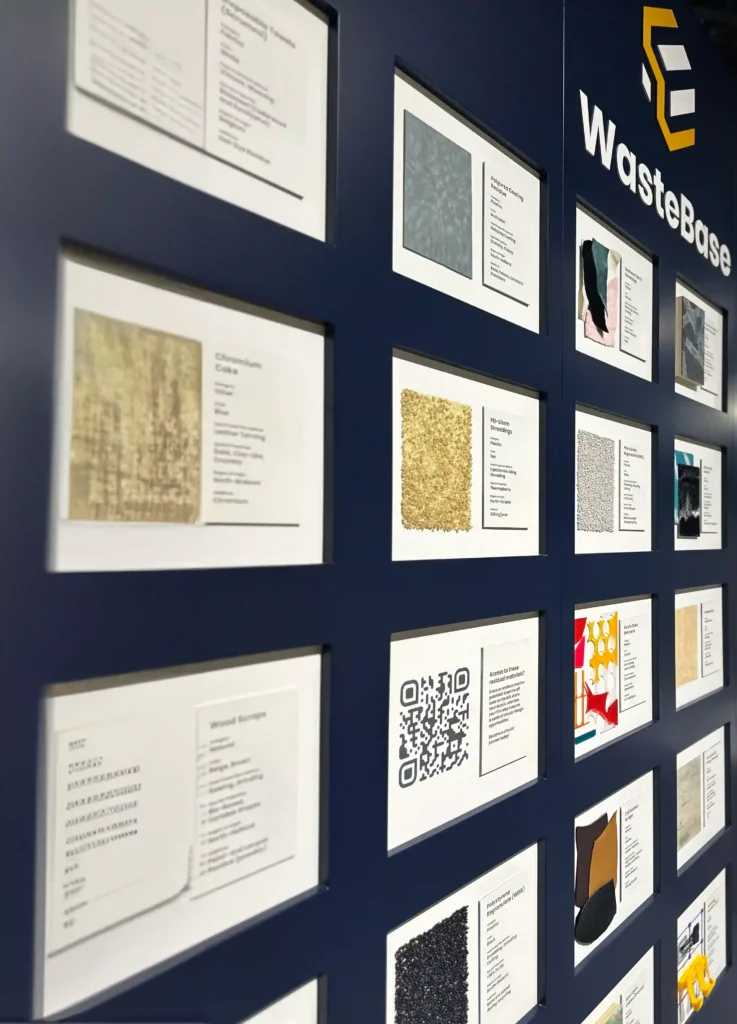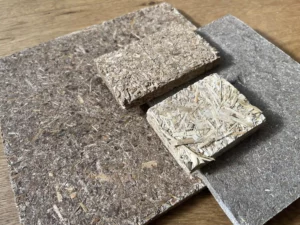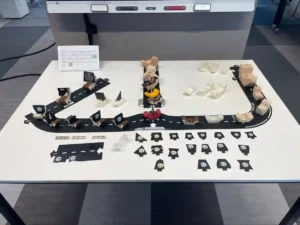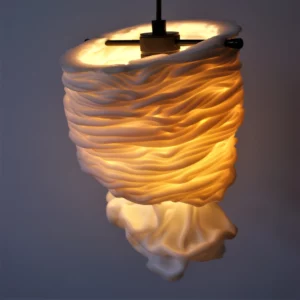
Collaboration with University for Circular Design
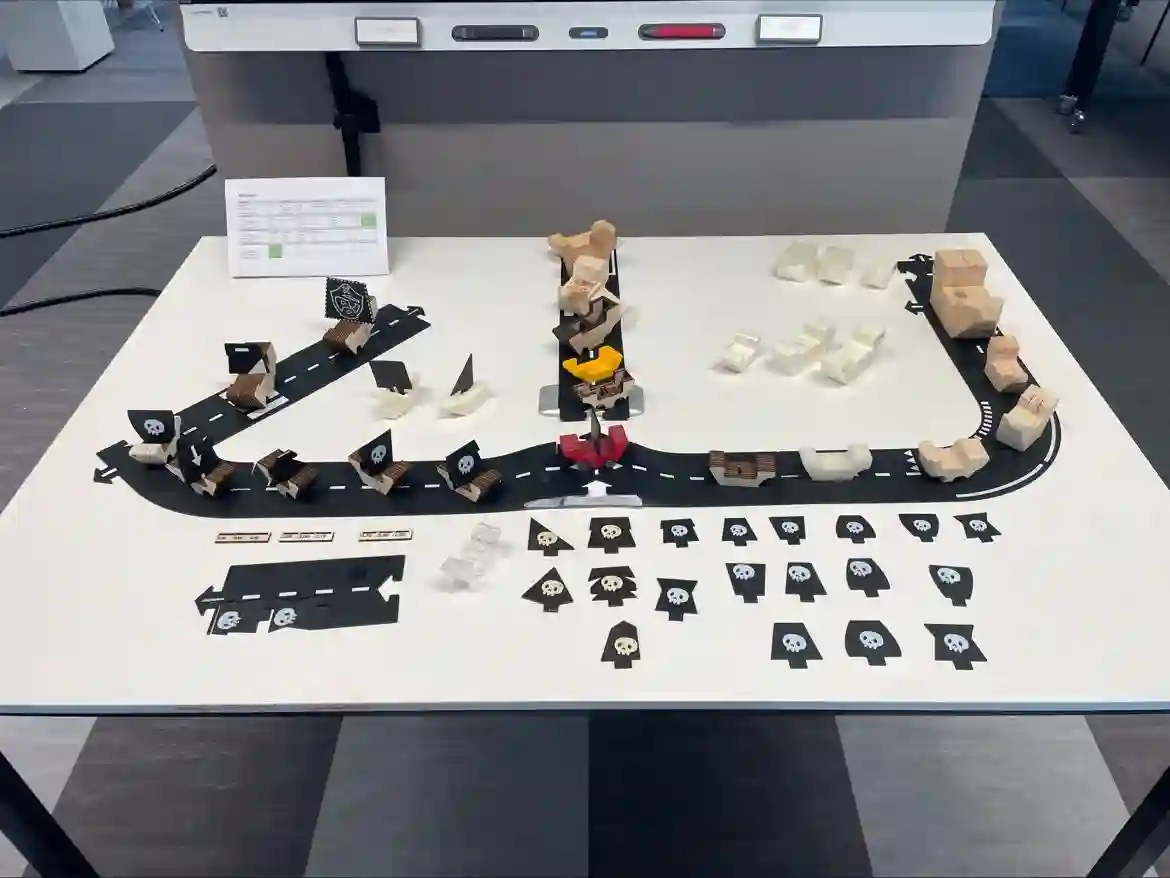
WasteBase recently partnered with Amsterdam University of Applied Sciences for an immersive project in Circular Design. The collaboration aimed to challenge students from the Industrial Design Engineering course to repurpose a surplus of misprinted toy roads from the Dutch Toy Company Waytoplay Toys.
The residual-stream in question, made from highly flexible PVC, possessed durable, waterproof, and child-safe characteristics, presenting a unique opportunity for repurposing. In the beginning of this project, students rigorously analyzed the properties and possible applications of the misprinted toy roads. This preparatory phase was crucial before engaging in a material-driven product design process.

The task was clear: find innovative ways to transform the surplus misprinted toy roads into new products for WayToPlay’s collection, embodying the principles of circular design. Students applied their creativity and design expertise to explore various possibilities. The result was a diverse range of product concepts, including functional card-holders, puzzles, and even imaginative space-craft designs. Each concept emerged from a meticulous process that combined material exploration, design thinking, and a commitment to circularity. offered a practical understanding of their innovative thinking and problem-solving abilities in the context of repurposing materials.
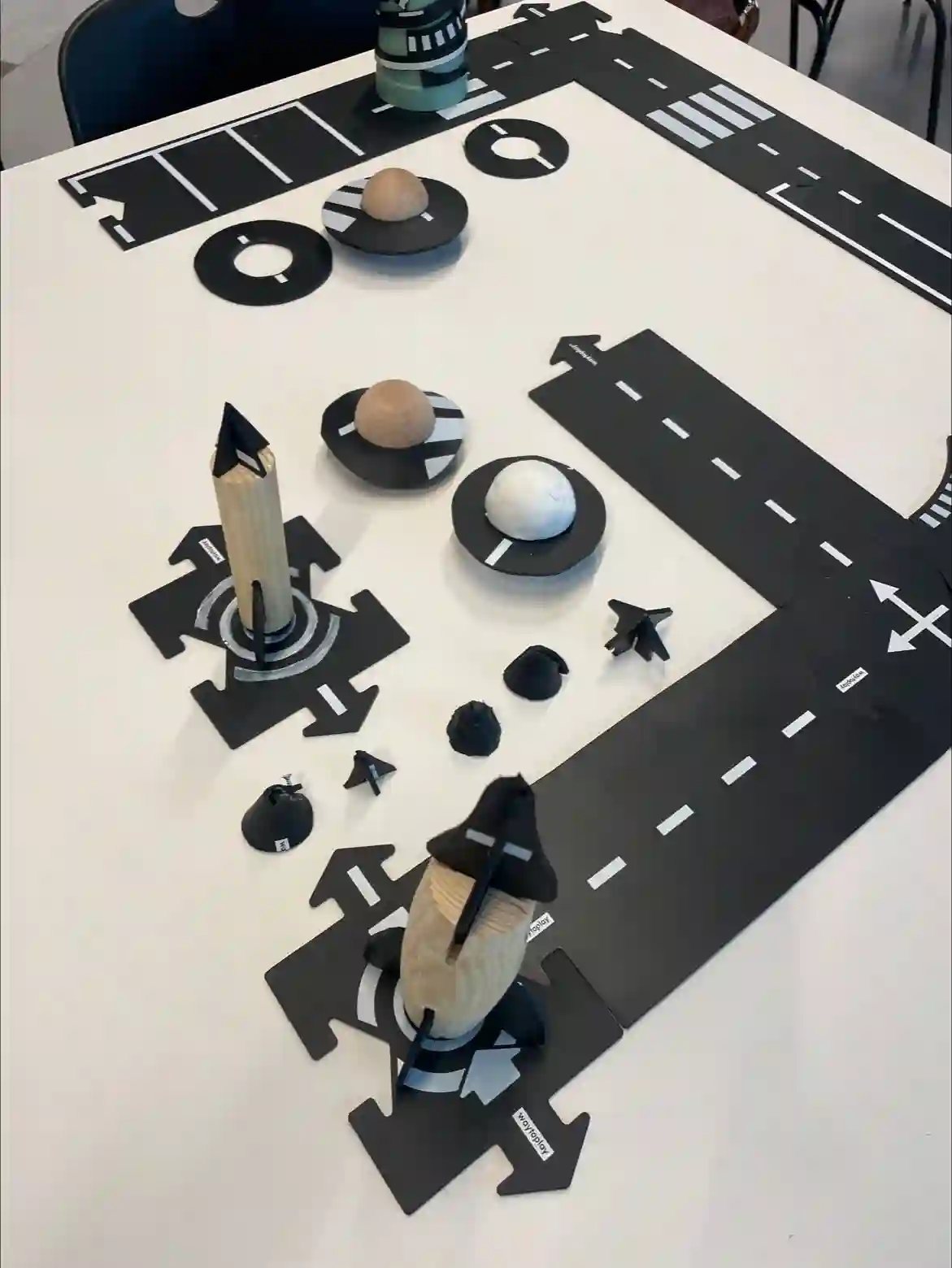
For WasteBase, this partnership served as a valuable learning experience. Observing and guiding the students’ design journeys provided crucial feedback for WasteBase’s developmental strategies. It offered practical insights into material repurposing and circular design, contributing significantly to WasteBase’s ongoing initiatives.
The collaboration between WasteBase and Amsterdam University exemplifies the potential of collaborative efforts in driving innovative solutions within the circular economy. It highlights the role of creative minds in reimagining waste as a valuable resource, aligning with a more sustainable future.
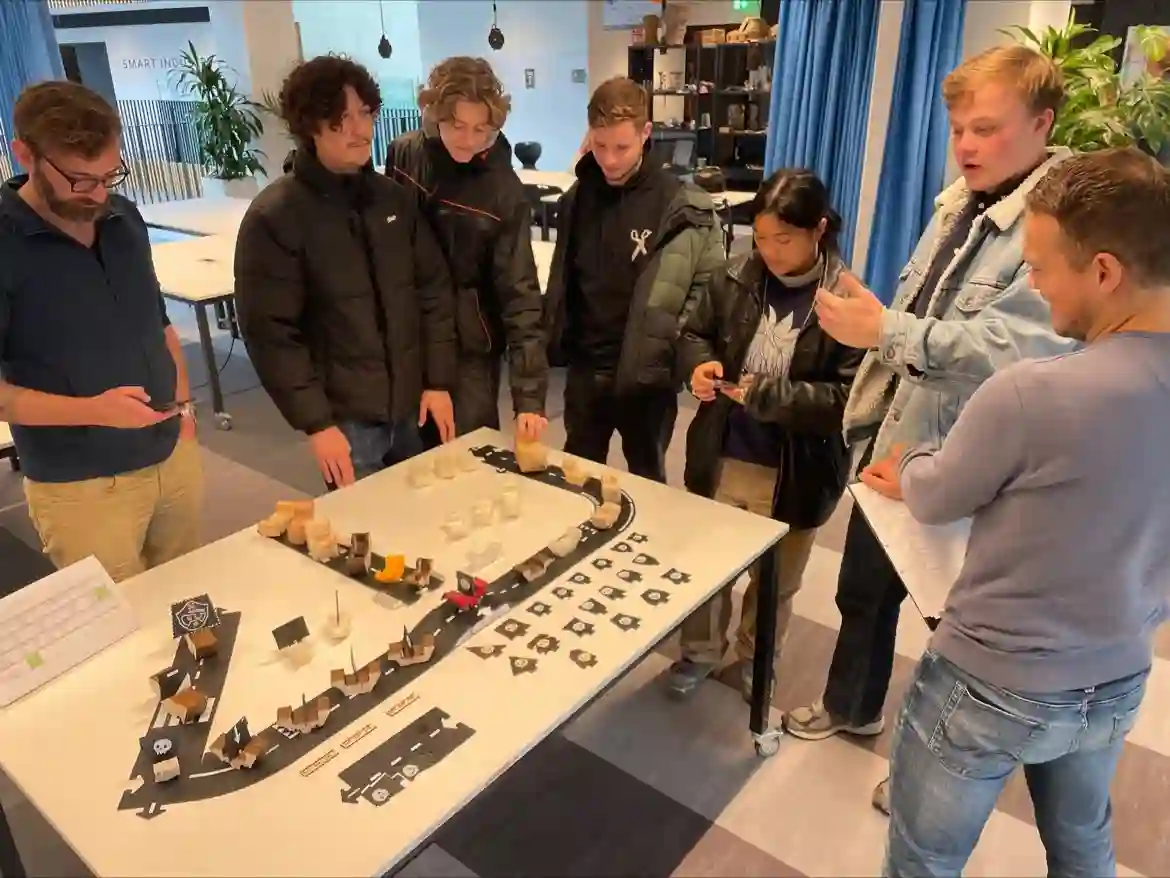
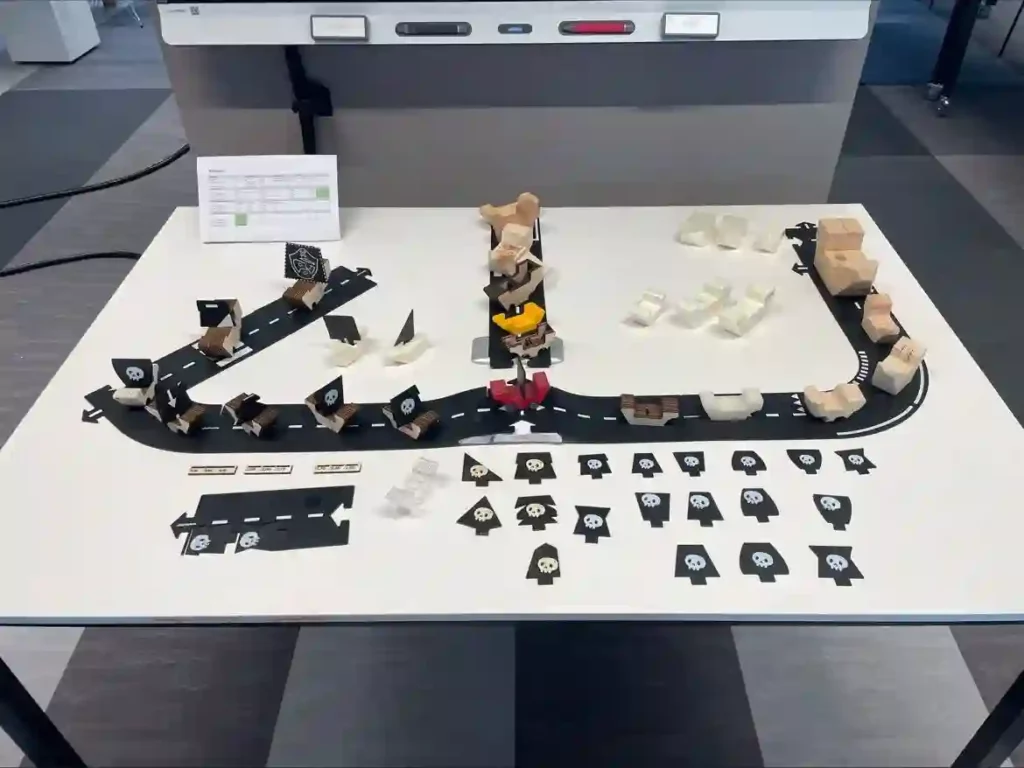
Share post
Related articles

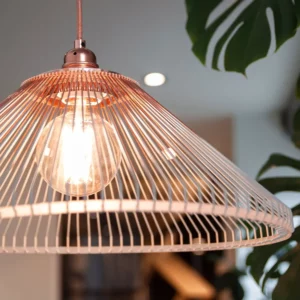
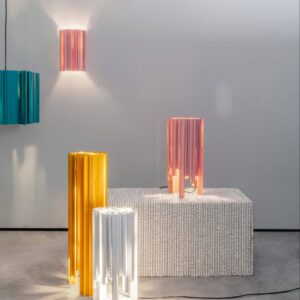
High Profile lighting collection
The High Profile lighting collection is a creation of Dutch
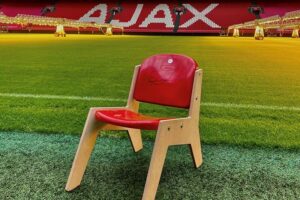
Material Database
Circular materials for your next project
Successful collaborations between the material Suppliers and Buyers are given a stage on this page. Get inspired by the articles and discover what repurposing can do for your projects.

